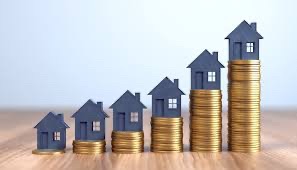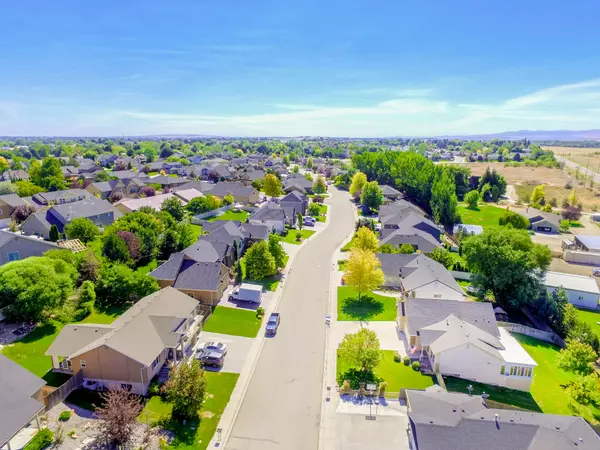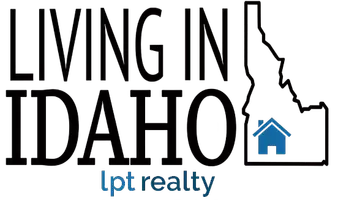How to Use Homeownership as a Long-Term Investment in 2024 | Living in Idaho
How to Use Homeownership as a Long-Term Investment
Table of Contents
- Introduction
- 1. Building Equity Over Time
- 2. Tax Benefits of Owning a Home
- 3. Renting vs. Owning: Long-Term Financial Gains
- 4. How to Leverage Your Home for Investment Opportunities
- 5. Appreciation in Property Value
- 6. Using Home Equity to Your Advantage
- Final Thoughts
- FAQs
Introduction
Homeownership isn't just about having a place to live—it's one of the most powerful ways to build long-term wealth. As a homeowner, you have the ability to grow equity, benefit from tax advantages, and even leverage your property for additional investments. In this guide, we’ll explore how to use homeownership as a long-term investment and maximize its financial potential.
1. Building Equity Over Time
One of the key financial advantages of owning a home is building equity. Each mortgage payment you make reduces your loan balance and increases the portion of the home that you own. Over time, this equity can grow significantly, especially as your home’s value appreciates.
- What is Equity? Equity is the difference between the market value of your home and what you still owe on your mortgage. The more you pay down your mortgage and the longer you own your home, the more equity you build.
- How to Build Equity Faster: - Make extra mortgage payments when possible to reduce the principal faster.
- Consider refinancing to shorten the loan term, paying off your mortgage sooner.
The longer you stay in your home, the more equity you’re likely to build, giving you a powerful asset for your financial future.
2. Tax Benefits of Owning a Home

Owning a home also comes with potential tax benefits that can make homeownership an even more attractive investment. These tax breaks can save you thousands over the years, further boosting the long-term financial advantages of homeownership.
- Mortgage Interest Deduction: You can deduct the interest paid on your mortgage, especially in the early years when most of your payment goes toward interest.
- Property Tax Deduction: Many homeowners are eligible to deduct local property taxes from their federal income taxes.
- Capital Gains Exclusion: When you sell your home, the IRS allows you to exclude up to $250,000 ($500,000 for married couples) in capital gains from the sale, provided the home has been your primary residence for at least two of the last five years.
These tax advantages help you keep more of your money and can significantly enhance the financial value of owning a home.
3. Renting vs. Owning: Long-Term Financial Gains
When comparing renting versus owning, it’s important to consider the long-term financial implications. While renting may seem cheaper upfront, homeownership is a long-term investment that often leads to greater financial security.
- With Renting: - You’re essentially paying someone else's mortgage.
- Rent increases over time, offering no financial return on the money spent. - With Owning: - You’re building equity as you pay off your mortgage.
- Housing costs remain more predictable over time.
- You gain an appreciating asset, as home values generally rise over the long term.
Owning a home allows you to benefit from rising property values, while renting offers no return on investment.

4. How to Leverage Your Home for Investment Opportunities
As your home’s equity grows, it can be used as leverage to unlock other investment opportunities. Two common ways to access this equity are through a Home Equity Loan or a Home Equity Line of Credit (HELOC).
- Home Equity Loan: This loan allows you to borrow a lump sum against your home’s equity, often at a lower interest rate than other loans.
- HELOC: A HELOC works more like a credit card, giving you access to a revolving line of credit based on your home’s equity.
You can use this equity to invest in renovations, which can further increase the value of your home, or to invest in other real estate, stocks, or business ventures, giving you more ways to grow your wealth.
5. Appreciation in Property Value
One of the best ways to use homeownership as a long-term investment is to take advantage of appreciation in property value. Historically, home values tend to rise over time, providing a significant return on investment for homeowners.
- Factors That Drive Appreciation: - Location: Homes in growing or desirable neighborhoods tend to appreciate faster.
- Improvements: Renovating or upgrading your home can significantly increase its market value.
- Market Trends: Broader economic conditions, such as low interest rates or housing shortages, can drive up home values.
While the housing market can fluctuate in the short term, property values generally rise in the long term, adding to the financial benefits of homeownership.

6. Using Home Equity to Your Advantage
Over time, as you build equity in your home, this equity can be a valuable financial tool. Whether it’s paying for college tuition, financing a new business, or purchasing a rental property, tapping into your home’s equity can open doors to new investment opportunities.
- Invest in Additional Properties: Use your home equity to purchase rental properties, which can generate passive income and further diversify your investments.
- Renovate and Increase Home Value: Consider using a portion of your equity to fund home improvements that will boost the value of your home, leading to greater returns when you sell.
With smart financial planning, homeownership can evolve into a valuable resource for your broader investment strategy.
Final Thoughts
Homeownership is far more than just a place to live—it’s a powerful tool for building wealth over time. From the equity you build to the tax benefits and appreciation, owning a home offers a unique opportunity to invest in your financial future. By taking advantage of these benefits, you can turn your home into one of the smartest long-term investments you'll ever make.
FAQs
How long should I own a home to see financial benefits?
In general, it's best to own your home for at least 5 to 7 years to start seeing significant financial benefits from appreciation and equity growth.
Can I use my home equity for other investments?
Yes! You can tap into your home’s equity through a Home Equity Loan or HELOC to fund additional investments, such as buying rental properties or starting a business.
What are the risks of using home equity as an investment tool?
The primary risk is that if your home value declines, you may owe more on your mortgage or HELOC than the home is worth. It’s important to use home equity wisely and not overextend yourself financially.
Is renting always worse than owning a home?
Renting can be a better short-term option for some people, but long-term, owning a home typically offers more financial advantages through equity building and appreciation.
Categories
Recent Posts










Leave a Reply


